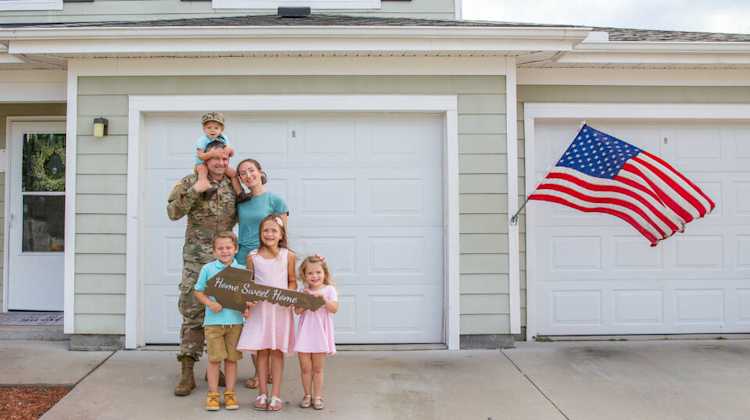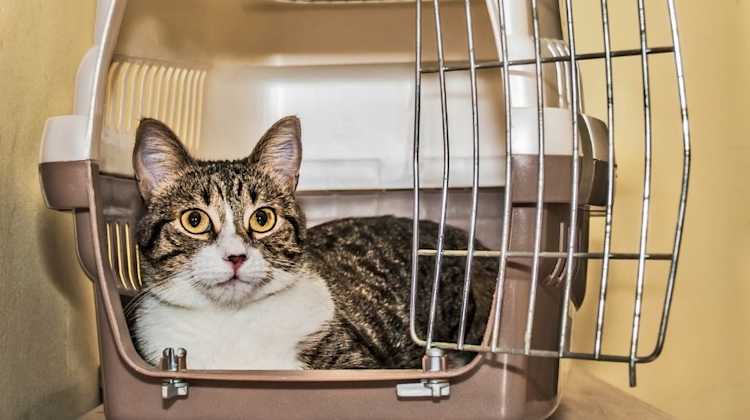Reverse culture shock: returning home to the U.S.
by Becca Stewart - January 5th, 2022

An OCONUS assignment is a once-in-a-lifetime opportunity to experience other cultures. We’ve all heard about “culture shock” when living overseas: adjusting to new languages, houses, social norms, and traditions. But culture shock can happen in the U.S., too. After years of living overseas, it’s not uncommon to experience “reverse culture shock” as we try to acclimate back to the American way of life.
Shopping choices
When stationed overseas, you either shop at the local commissary or “on the economy” at a local market. Either way, you likely won’t have a ton of choices. Many stores are relatively small, with more limited choices than you’ll find in a big box store stateside. While it may feel frustrating at first, this lack of options becomes familiar and comforting as your time OCONUS continues. It’s simple. Straightforward.
After a tour overseas, it can feel completely overwhelming to walk into an American “big box” store for the first time. I vividly remember shopping at a Wal-Mart not long after moving back from Germany. Shampoo was on my list, as was cheese and bread.
There was an entire aisle dedicated to shampoo. One full aisle. Suddenly, I felt frozen, unable to make a decision. Did I want lather or no lather? Moisturizing? Volumizing? Color-safe? The options seemed endless. For three years, I simply grabbed whatever Aldi had available or picked up a favorite brand if it showed up at the Exchange. But now, I stood in that aisle, completely overwhelmed with options. And it wasn’t a good feeling.
The cheese and bread were different. Sure, there were options, but nothing like what I’d grown accustomed to. I’d been completely spoiled by Europe, eating fresh-baked brötchen and aged Gouda. There were breads and cheeses at every German market, each better than the last. Now, as I stood in that American bread aisle, loaves stacked as high as the eye could see, nothing seemed to compare. White sandwich bread, processed cheeses, and unidentifiable lunch meats? Could I really return to eating those again?
For a while, grocery shopping felt totally foreign. I was overstimulated by the sheer volume of products and the plethora of choices I faced. While I had spent years dreaming of wandering through the aisle of Target, the reality was very stressful at first.
Crowd volume
Americans tend to speak loudly, or at least that’s what many German nationals told us during our time overseas. We quickly learned to check our volume when in a public place – even outdoors. Unless we were at a festival, we generally heard only muted conversations, especially indoors.
While living overseas, I could “tune out” whatever was happening around me. Most of the crosstalk and background conversations were in German, meaning I couldn’t understand much of what was said. We learned enough German to get us by, but rarely did I encounter a conversation that caught my attention – because I was not (and still am not) fluent. We’d walk through a public space, blissfully unaware of the conversations around us. It was all ambient noise, allowing us to focus on one another.
When we returned to the States, all that changed. Not only were conversations louder, but they were in my native language. Suddenly, it was impossible to tune out the background noise. It felt like every single person was talking directly to me. My brain struggled to make sense of the crosstalk, a sort of oversensitivity to the world around me.
Many people who return from an OCONUS assignment report similar experiences. The unintentional eavesdropping, polite conversations with strangers, and crowd noise can feel very stressful at first.
Missing traditions
Many OCONUS installations are in tradition-rich countries. There are festivals marking occasions big and small. Holiday traditions abound, from a May Pole in each village to unique celebrations held annually throughout the country. Many of these traditions date back hundreds of years. Participating in these events feels like stepping back in history, allowing us to be players in a story that spans generations.
The United States is a relatively new nation, made up of people from all countries, on all continents. Our traditions often exist within families, but very few exist on a national scale. Sure, there are barbecues on the 4th of July, colossal Thanksgiving dinners, and Labor Day end-of-summer celebrations. But we borrow many of our traditions (especially those surrounding holidays) from other countries and cultures.
When you live overseas, you recognize and appreciate your host nation’s traditions. Moving back to the States can often feel a little empty in this regard. You miss the Fasching parades, Oktoberfest, and Christmas Markets. One way to keep these foreign traditions alive is to incorporate them into your life in the U.S., bringing a piece of your overseas assignment back home with you.
Technology
In the world of technological advancement, three years is an eternity. Chances are, the America you come back to will be more advanced than the America you left.
Some OCONUS bases have limited access to internet, phone service, and other technology. For several years, you probably won’t have the latest computers, mobile devices, or gaming systems. Self-driving cars will face stricter regulations. Home technology, like device-activated locks, lights, and heating, take longer to catch on when the homes are a hundred years old. The technology taking off in the U.S. probably won’t reach OCONUS locations for months or years.
When you return home, you might feel like the world has moved on without you. In some ways, it has. There will be new technology for you to learn. For me, it seemed like “smart homes” became all the rage while we were in Europe. I came back to an America where people were controlling their heat from their phones and their ovens with nothing more than a voice command. It felt like stepping into the future, while I was still stuck in the past.
It’s not uncommon to feel like technology left you behind while you were overseas. In time, you’ll catch on. And if you’re having trouble, just ask a young person!
Feeling homesick for OCONUS
Reverse culture shock is very real. Everything changes when you live in a foreign country. Over time, the foreign becomes familiar. Shifting back to the American way of life isn’t always an easy transition. There’s a sense of homesickness, even though you’re back in your homeland. And that’s something that never completely goes away.






